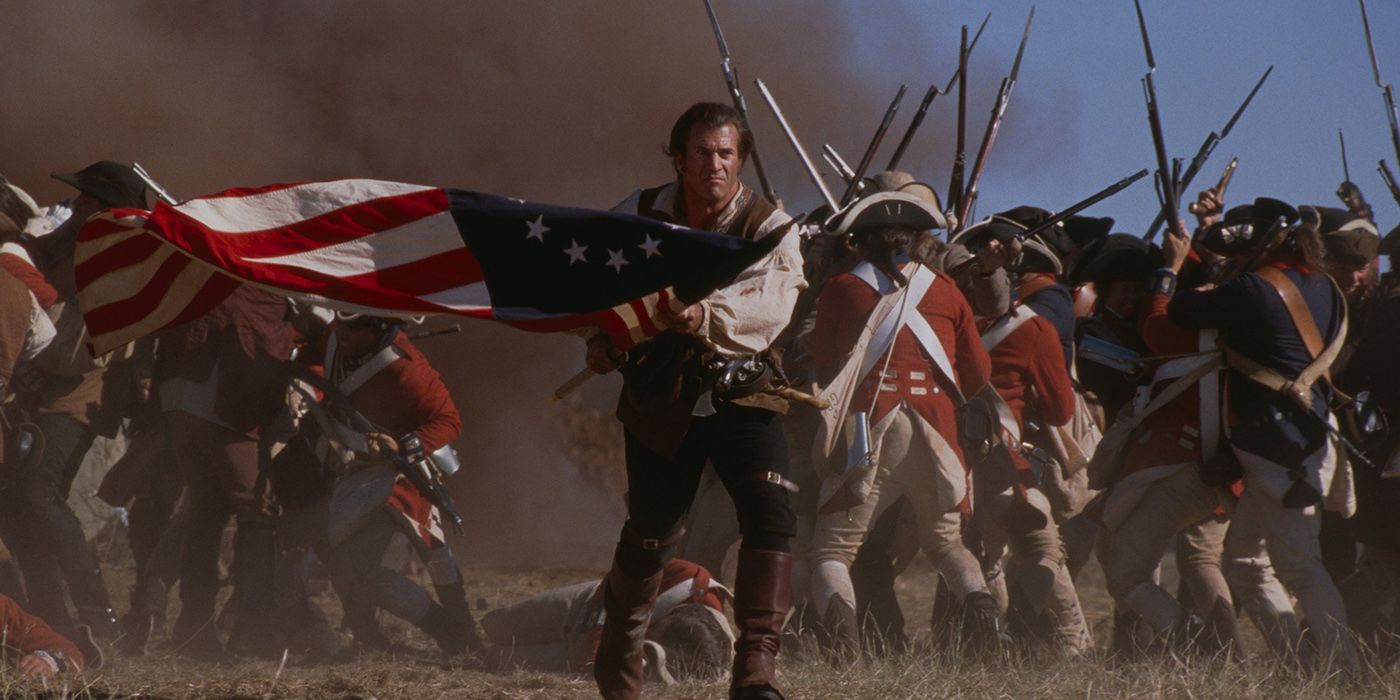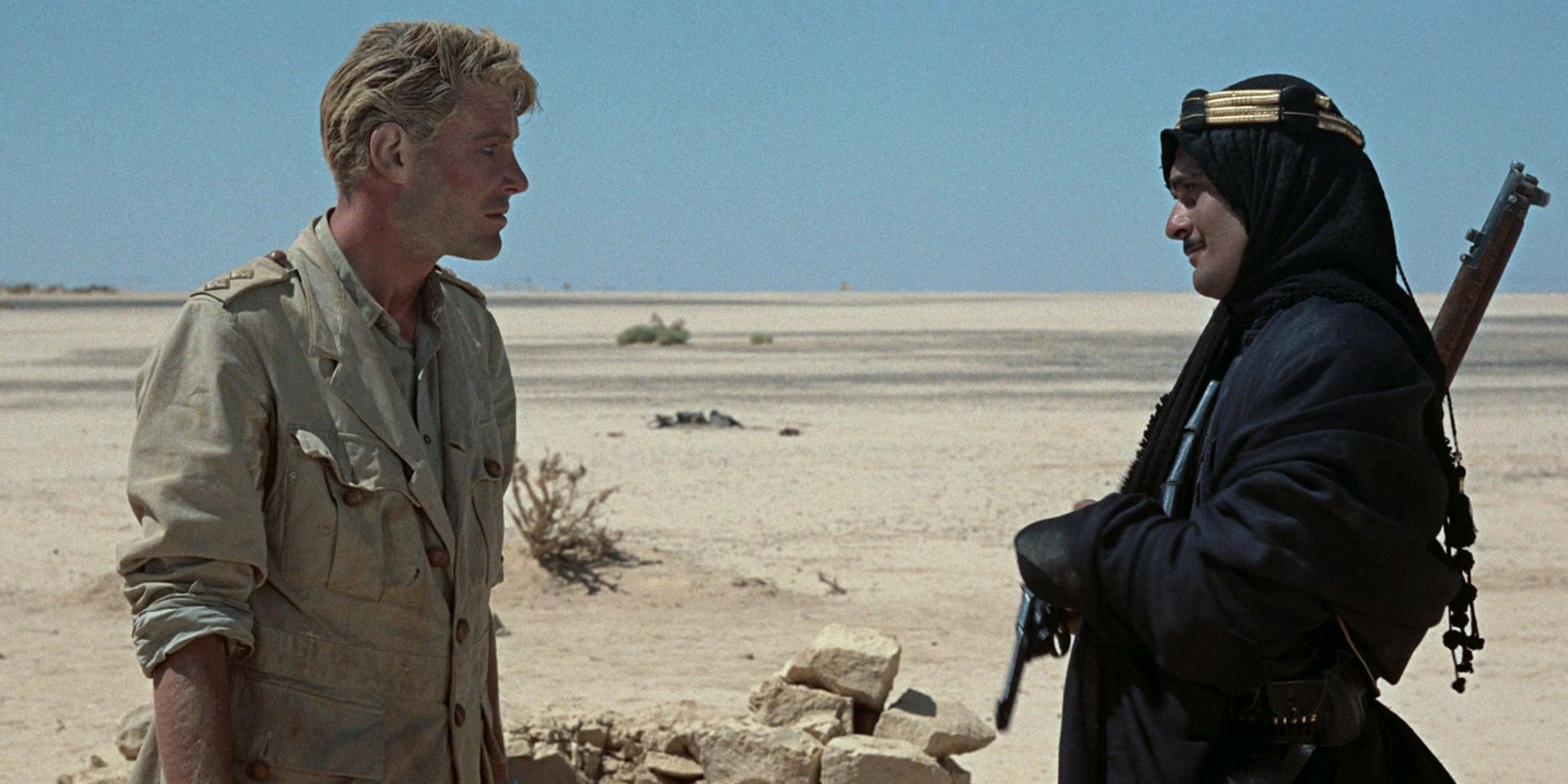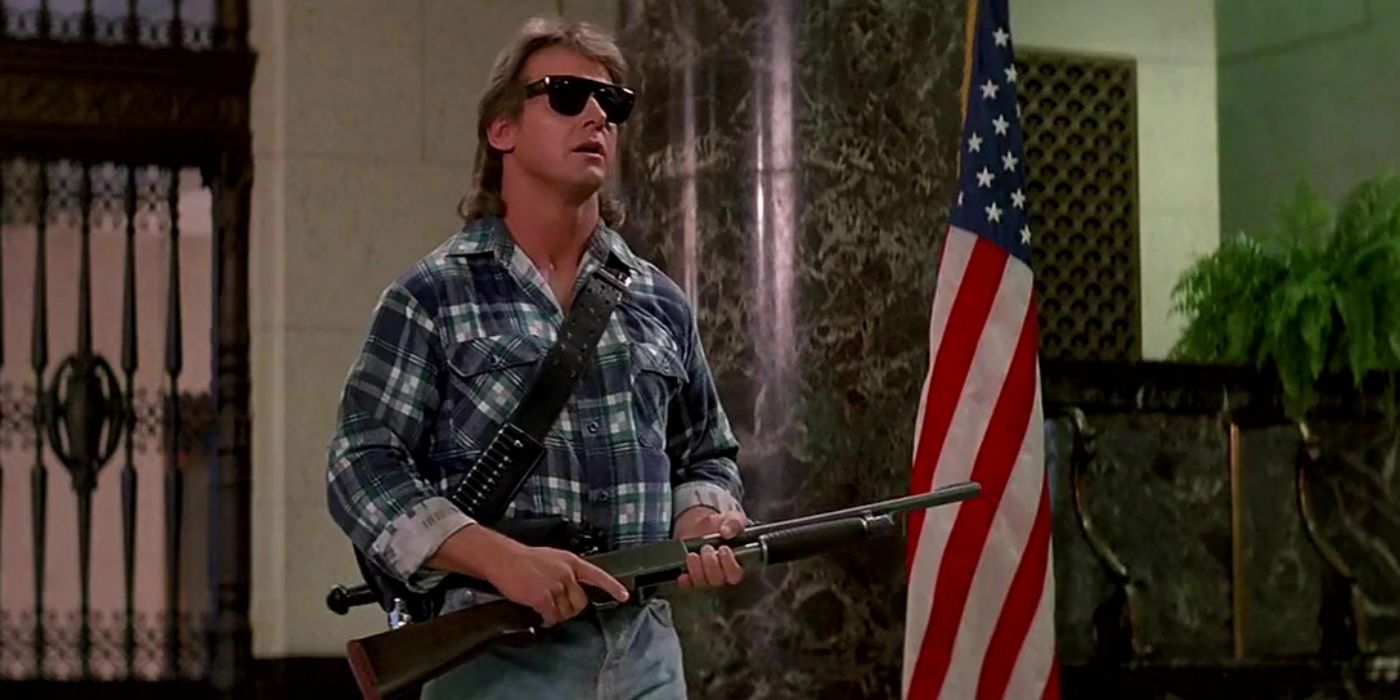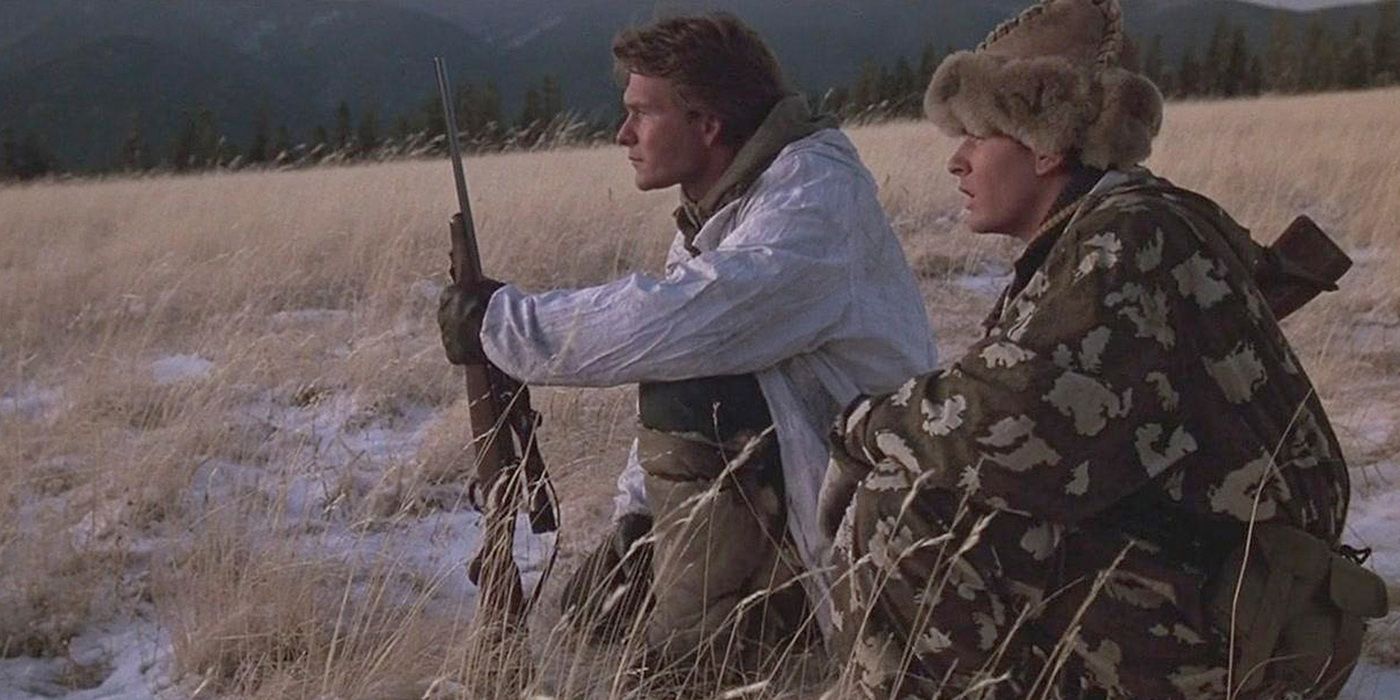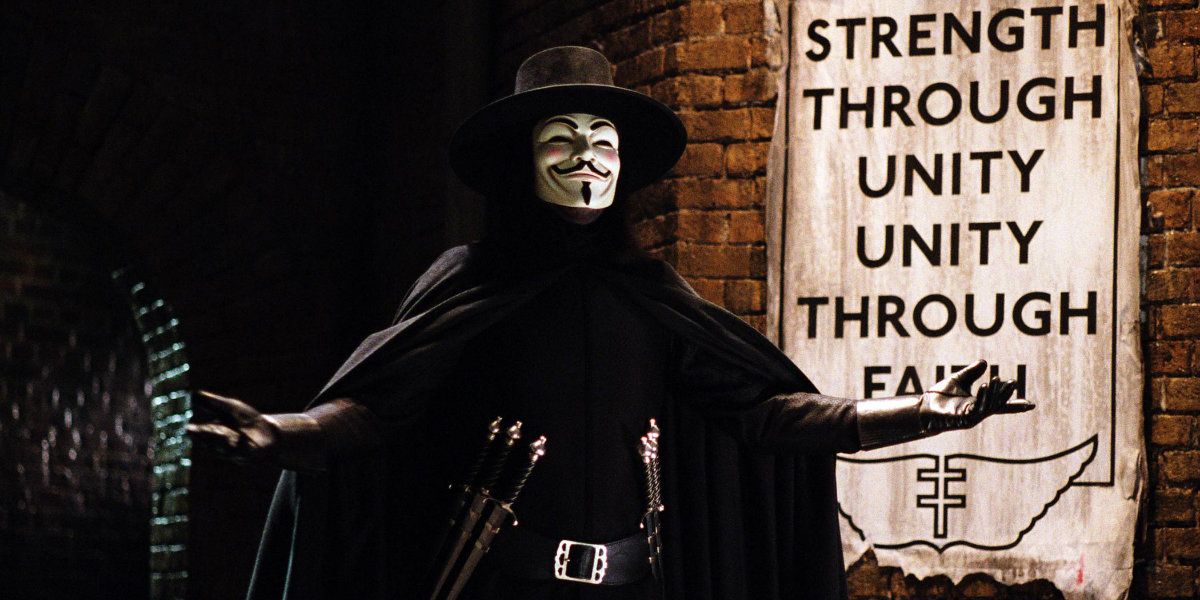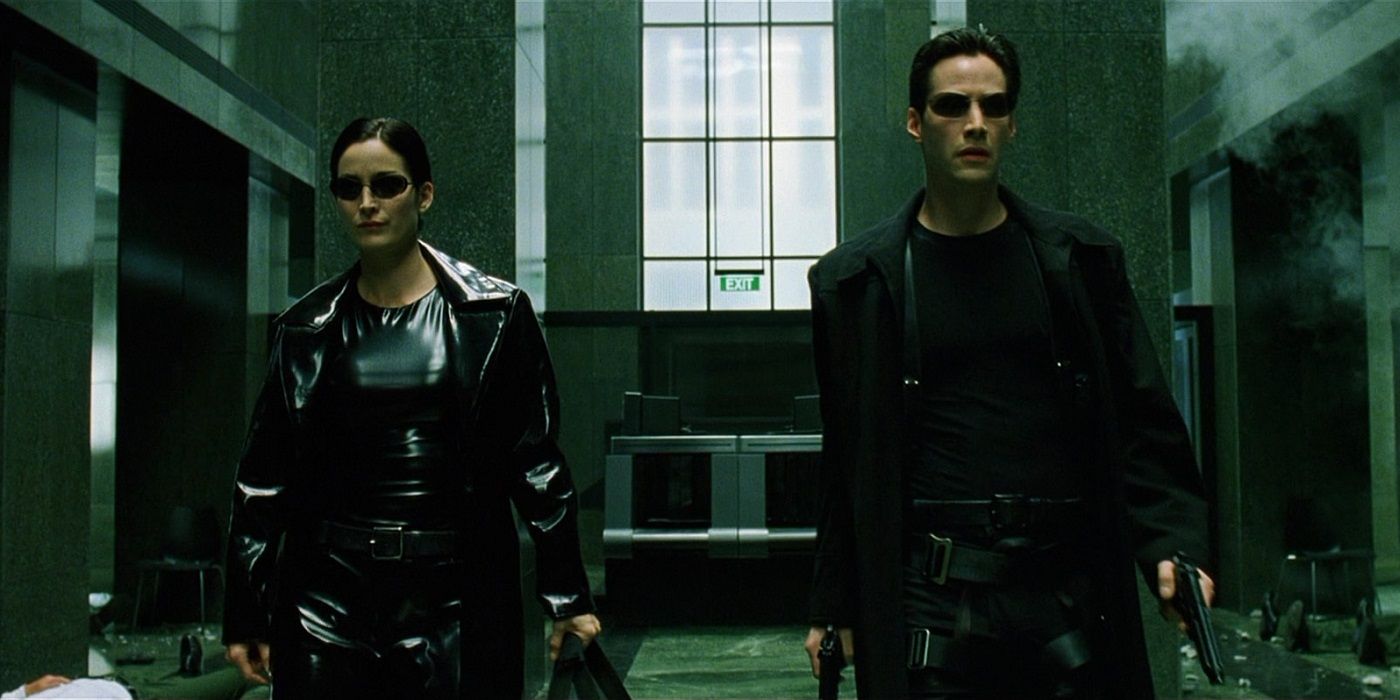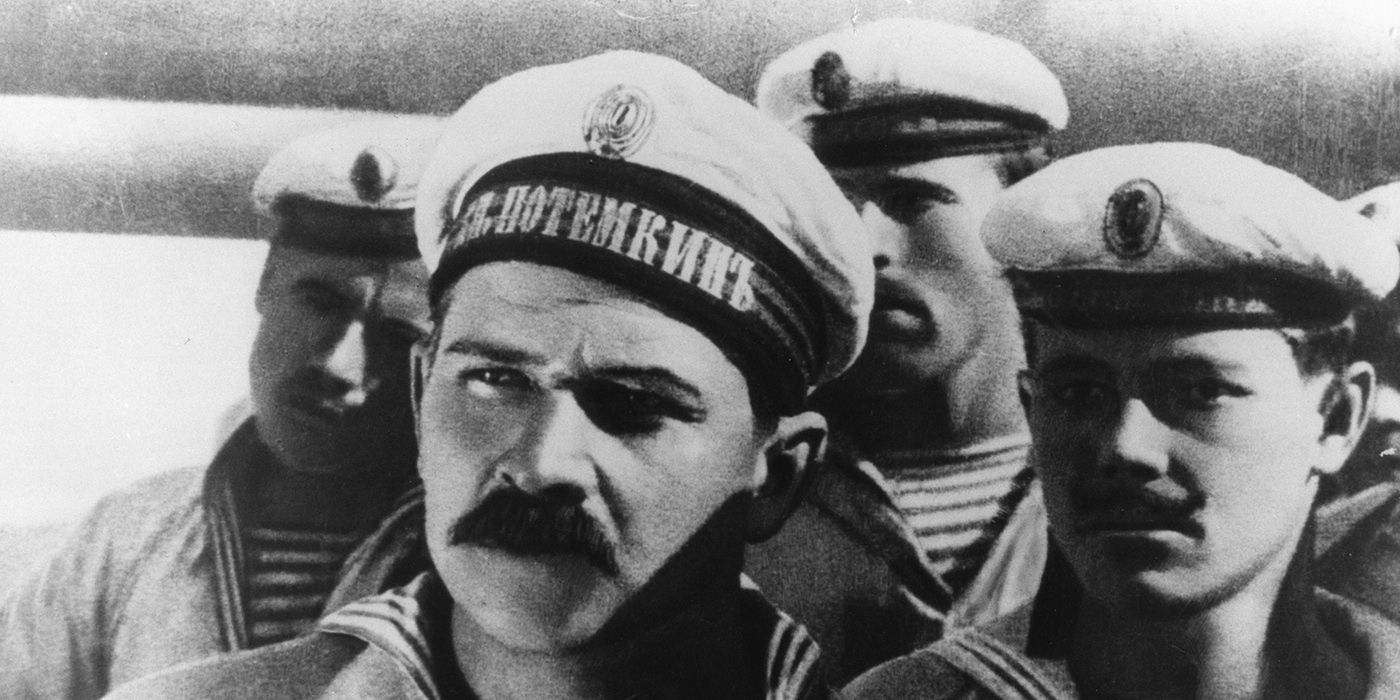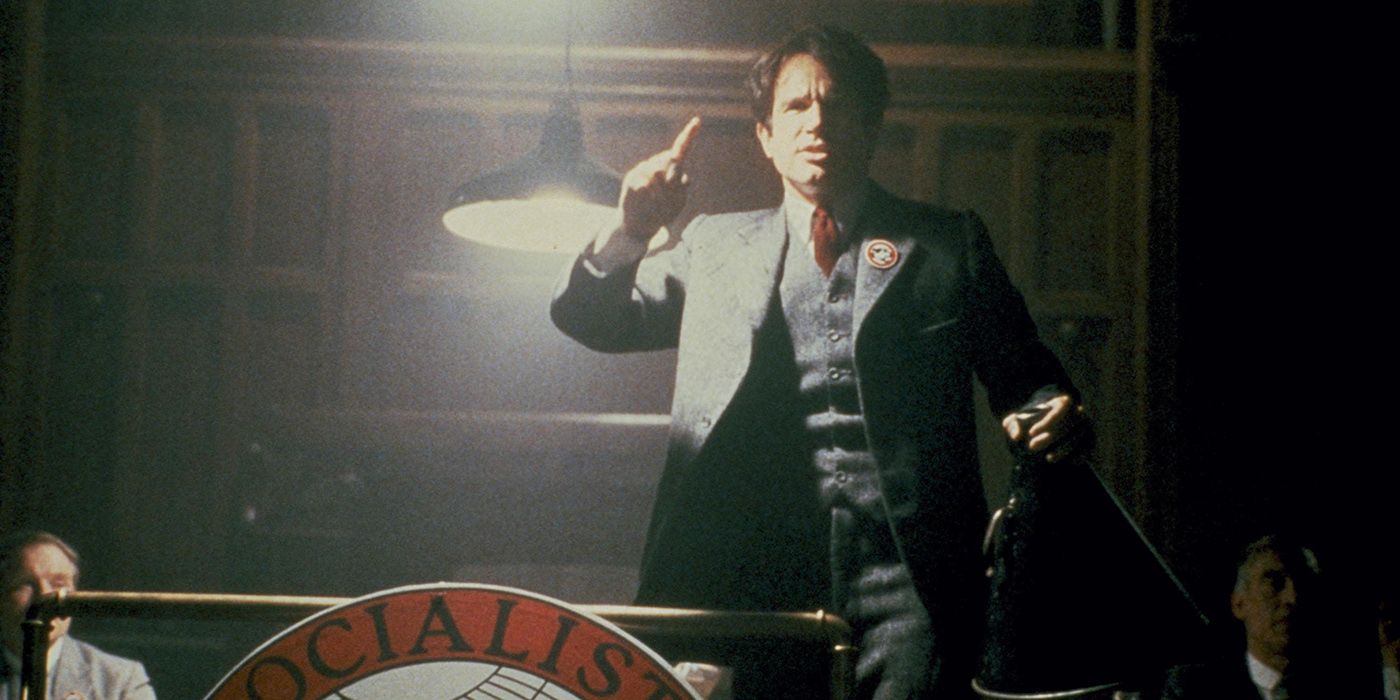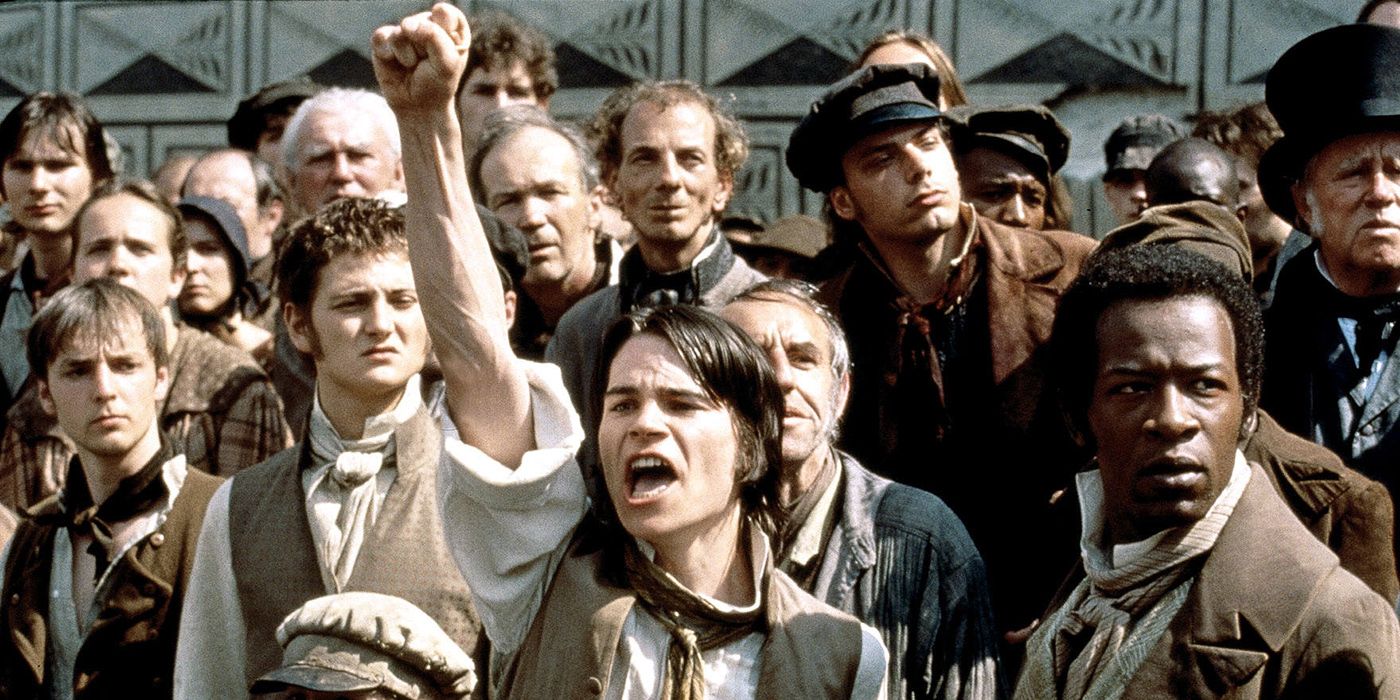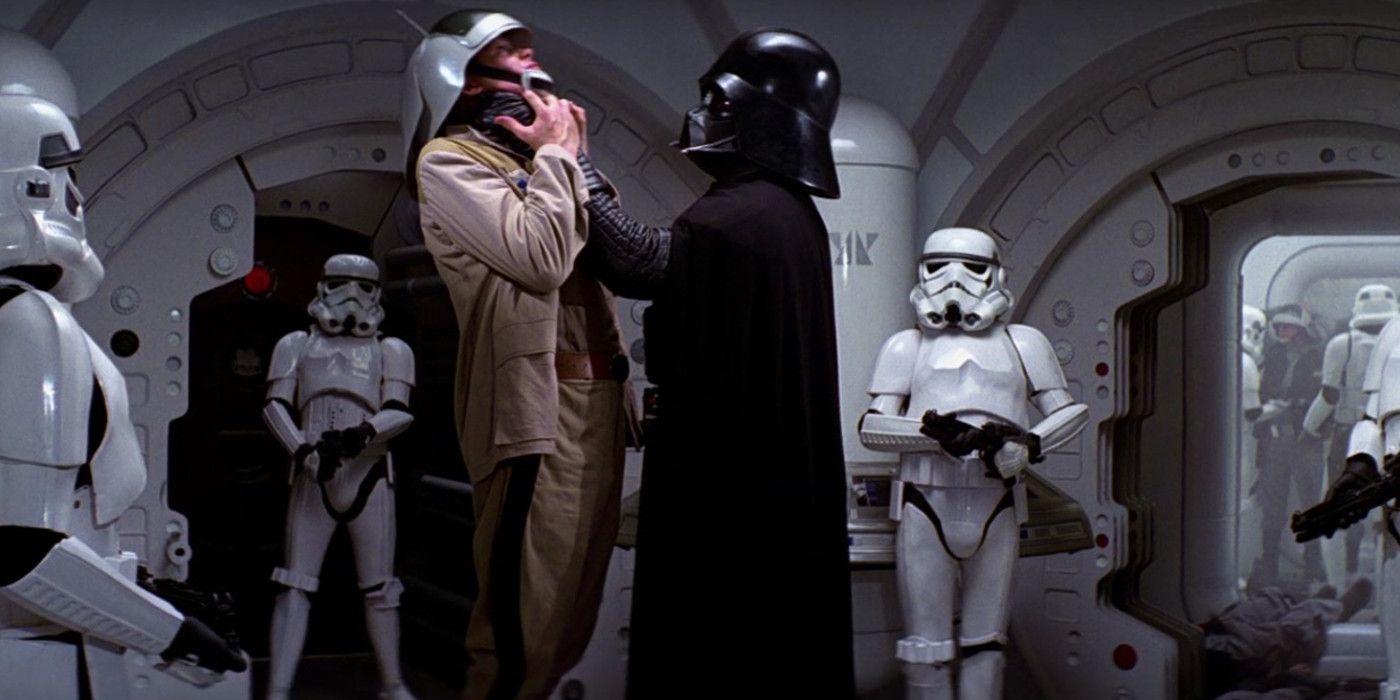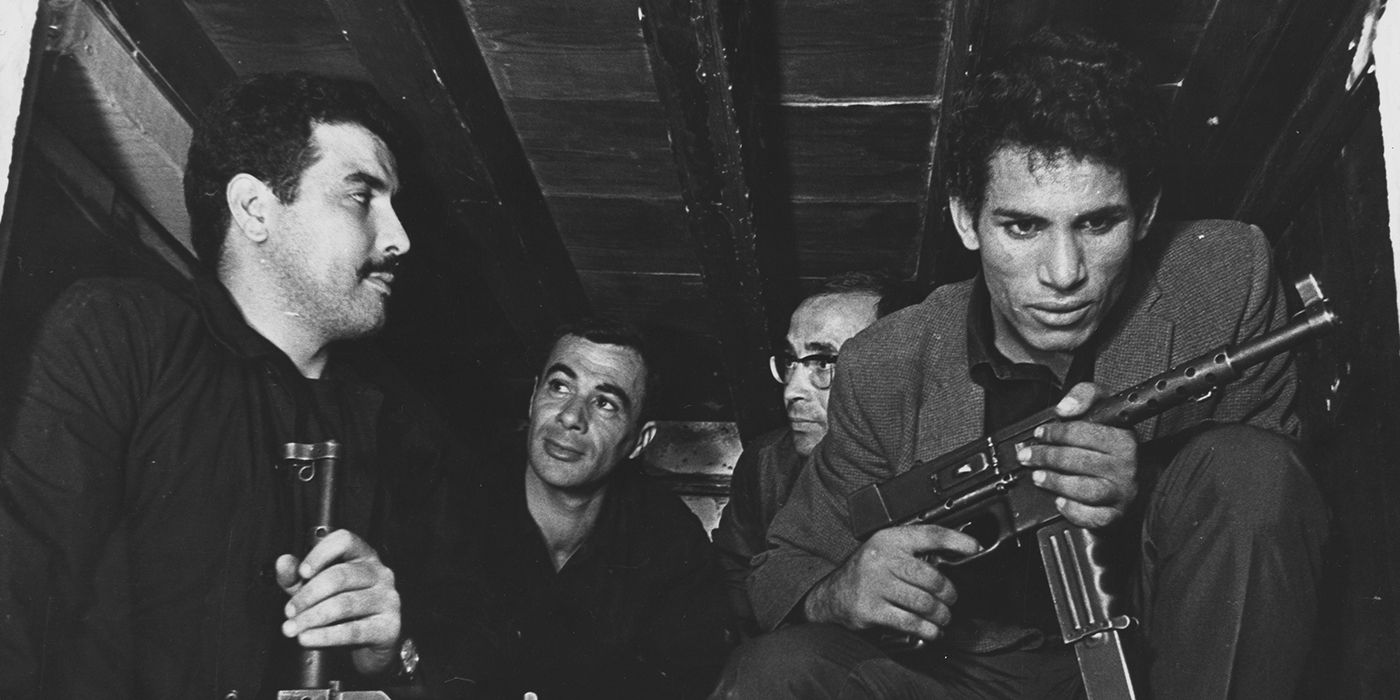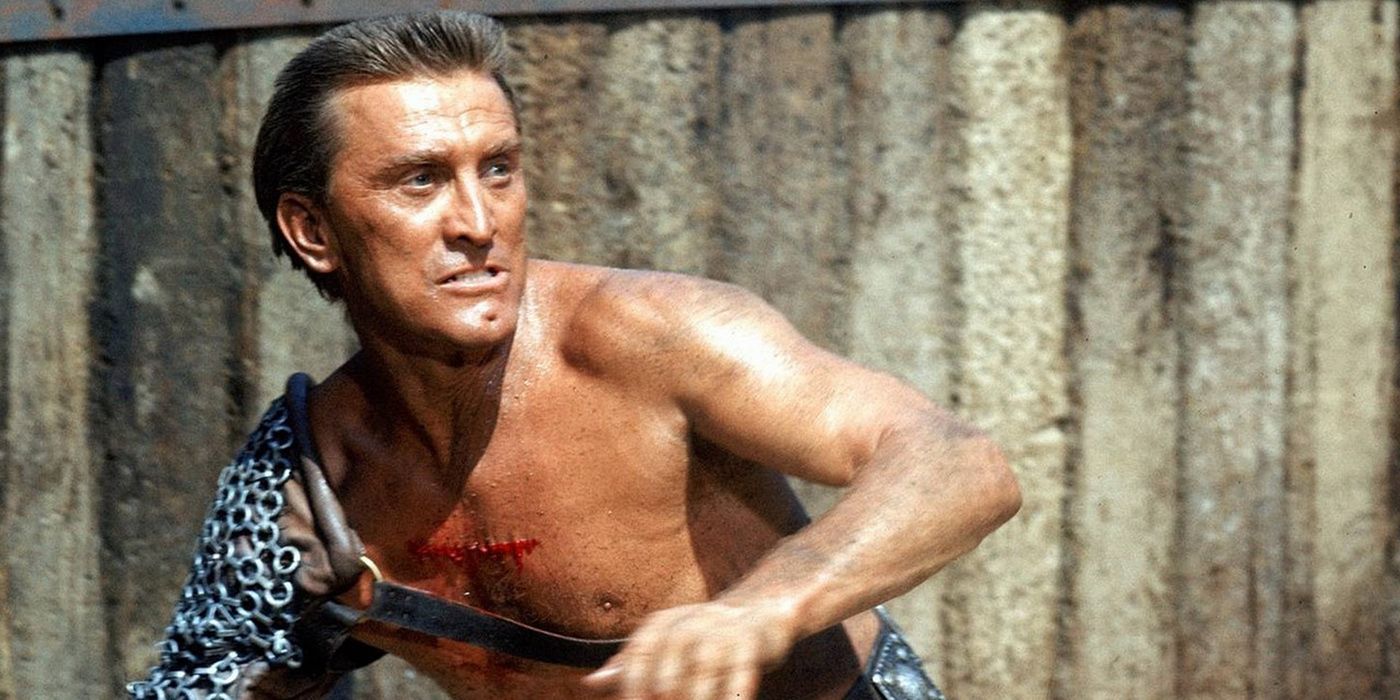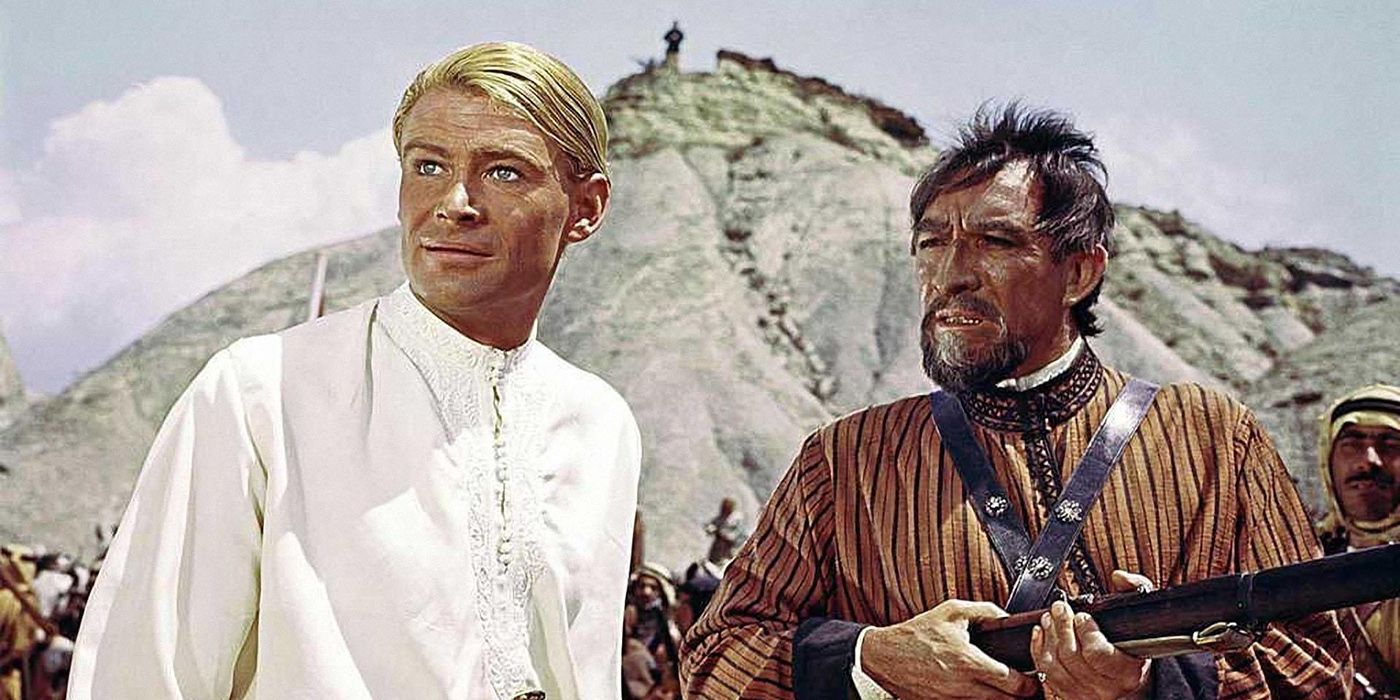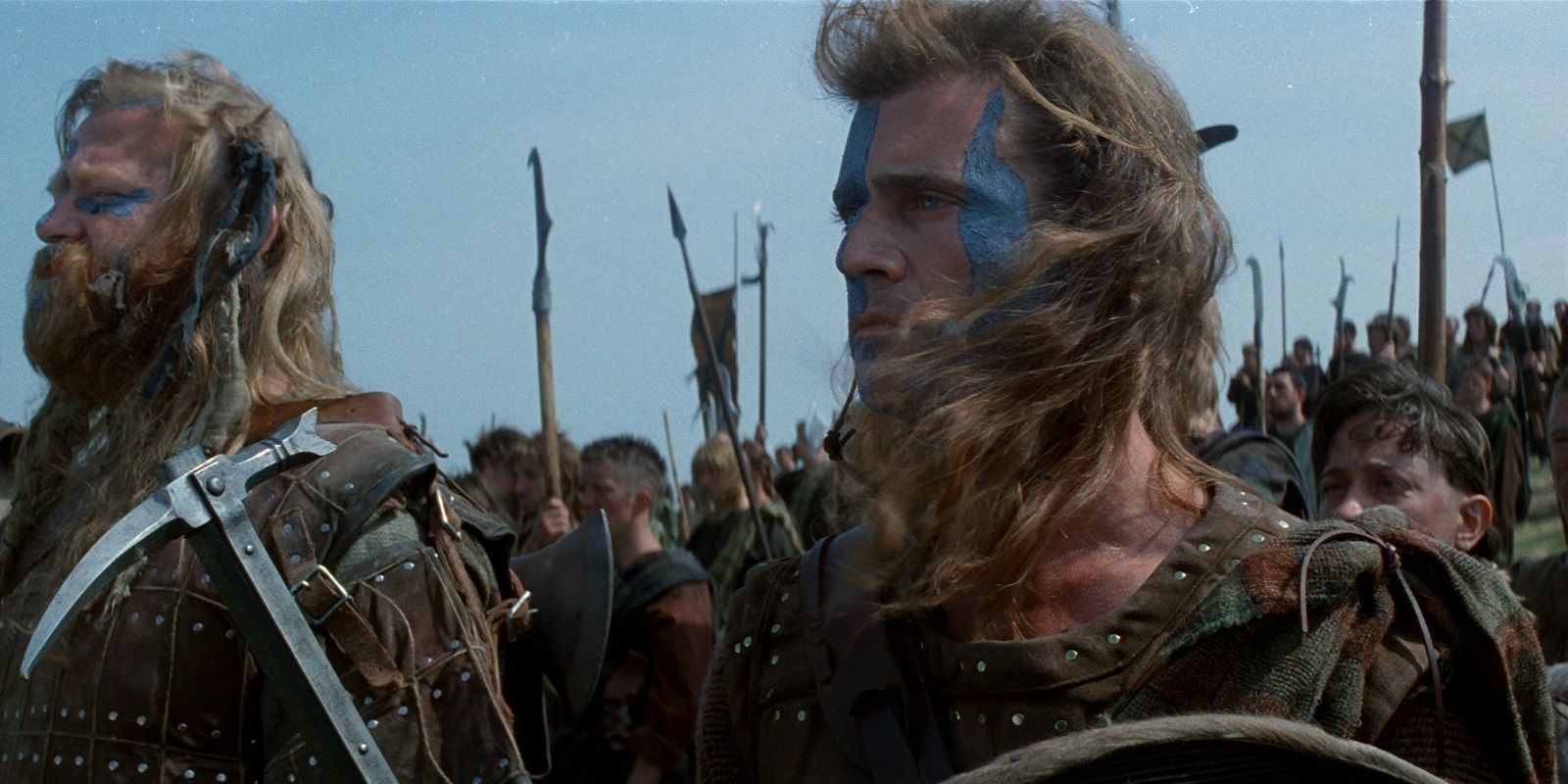These days, the 4th of July has taken on a sort of cultural life of its own. When we think of the holiday, we typically think of hot dogs, fireworks and copious amounts of canned America beer (formerly known as Budweiser). The modern 4th of July is as much of a national summer party as it is a remembrance of the revolution that followed America's declaration of independence. Still, the day will forever be a celebration of that revolution.
In honor of that celebration, perhaps you should consider adding a revolution movie screening to your 4th festivities. Films have always been obsessed with the subject of revolting against a major power, and it's not hard to see why. A revolution contains all the drama, action and shock that you could ever want from a major motion picture. Whether they form revolutions of their own or attempt to retell the story of actual revolts, some of the greatest movies ever made have achieved that lofty status by successfully conveying the sheer spectacle of an uprising.
Here Screen Rant's take on the 15 Best Revolution Movies Of All Time.
15. They Live (1988)
In most movies where the world is overrun by aliens or some outside malevolent force, there is usually an element of revolt in the narrative. Independence Day, for example, sees our heroes rise against the invading forces in a grand militaristic bid to take back their planet. The thing about those movies, though, is that their views are always a bit skewed. The revolt against alien forces in these movies is typically the result of humanity needing to rise up in order to simply survive. It’s an easy cause to get behind, but it lacks the guerrilla warfare subtlety of other great revolution titles.
They Live skirts around this common trait by presenting a world where the aliens have definitively won the war against humanity without firing a single shot. They live among us in positions of power and use subliminal messages to keep our attentions diverted from the things that matter most. This approach allows the protagonists of the film to stage the kind of underground coup that we typically associate with revolutionary figures. To this day, They Live remains a brilliant allegory that cleverly presents the class war in a militaristic manner.
14. Red Dawn (1984)
Before America became infatuated with the idea of a world where zombies rule, most people in the United States were obsessed with the concept of Russia taking over. Though some simply felt that the war would consist of a series of nuclear missiles being launched from across the globe, others were prepared for the kind of traditional ground invasion that had started many wars in the past. The obsession became so great that it wasn’t long before various forms of entertainment capitalized off of that fear by presenting their own version of what would happen in this nightmare scenario.
In many ways, Red Dawn represents the culmination of this mindset. This story of a band of small town normal people banding together to form an almost childish band of rebels (“Wolverines!”) is definitely absurd in its concept, methods and writing, but it also happens to shed some light on the day dreams of invasion and resistance that many people had at this time. This is especially true of our group of heroes, who are able to rise up and perform tremendous feats of heroism under the threat of incredible circumstances. In that respect, this is the ultimate in wish-fulfillment rebellion.
13. Bananas (1971)
There are many, many different kinds of rebellion films out there but, for the most part, they tend to be pretty serious pieces of work. That makes sense considering that rebellions tend to be pretty serious by their very nature most of the time. But you know, even in the most serious of circumstances, you have to be able to find some laughter. Life is inherently absurd, and so are revolutions if you find the right way to look at them.
Leave it to Woody Allen to find that perspective. Bananas is a movie about several rebellions. There’s the one that opens the film in the fictional country that totally isn’t Cuba, there’s Woody Allen’s rebellion against New York culture, and there’s the formal rebellion that Allen leads when he travels to the country that totally isn’t Cuba. The thing about all of these rebellions is that they are all absurd. Whether they are presented with Saturday Night Fight-style commentary or simply based on Allen’s neurotic world views, Bananas is the rare film that treats the mere act of rebellion as something that you can laugh at so long as you are willing to darken your sense of humor just a bit.
12. V For Vendetta (2005)
Here’s the thing about V for Vendetta: It’s maybe a little too effective in its portrayal of rebellion. The character of V is a larger than life representation of the human spirit who is not only the one man in an oppressed world willing to rise up and perform direct actions against the totalitarian government that rules the day, but he’s also a consummate loner of unshakable nobility that so happens to be highly skilled in a variety of combat forms. It’s a character that has become something of a poster child for a generation of first world anarchists.
In many ways, though, it’s really easy to understand why so many have become emotionally attached to the character of V -- and V for Vendetta as a whole. Its world of media, government and religion controlled conservatism and isolationism inches frighteningly closer to reality every day. However, if you are able to look at this movie as a piece of entertainment, you’ll find it’s a pretty damn good one. V for Vendetta is that rare kind of movie that can present a horrific revolution in a way that makes you both think and stand up and cheer when our heroes ultimately manage to win the day and walk towards an uncertain future.
11. The Patriot (2000)
It’s easy to pick apart The Patriot from a filmmaking standpoint. Its heroes are almost entirely pure (the writers go out of their way to even clarify that the family slaves are, in fact, paid laborers), the villains are the kind of evil usually reserved for cartoons, its historical accuracy is laughable at best, and the film’s writing is about as subtle as that one scene where a soldier has his head removed with a cannonball. The Patriot, technically speaking, is not a very good movie.
But none of that really matters. Despite the film’s many flaws, The Patriot proves to be an almost impossibly entertaining piece of cinema. It’s the best kind of big budget blockbuster in the sense that its action sequences and entertainment value are off the charts, but the movie is even more interesting if you view it as a sort of revolutionist propaganda piece. The Patriot so effectively captures the untamed spirit and drive of revolutionists that you find yourself not really asking too many questions throughout the film. By the time that the movie’s final battle comes to pass, you would give anything just to see those sniveling British troops finally get theirs at the hands of the righteous Americans. It’s the kind of movie you can pop in every 4th of July when you want to feel a burst of patriotic pride.
10. The Matrix (1999)
It’s odd that The Matrix is never really talked about as a revolutionist film. While later movies in the trilogy (you know, the ones that you try to forget about) directly tapped into the revolutionist themes when it came to portraying the battle of Zion, the original Matrix rarely directly presents itself as the story of a small band of humans trying to (quite literally) rage against the machine.
Yet, that’s exactly what the movie is. Look beyond all the religious metaphors, kung fu sequences, classic Keanu Reeves lines and John Woo gunfights, and you’ll find a shockingly intimate tale focused around a band of survivors desperately putting their hopes into a lone individual who may or may not be their savior in an impossible battle. Oddly enough, even though the sequels directly presented themselves as revolutionist stories, it’s that more intimate portrayal of their struggle as shown in the first movie that makes it such an incredible revolutionist piece. In retrospect, it's the film’s famous answer to that question “What is the Matrix” that makes it a revolution film. From that moment on, you want to see these rebels succeed and topple the lie of the world we live in.
9. Che (2008)
Steven Soderbergh’s two-part epic about the life of Cuban revolutionist Che Guevara was always destined to be a somewhat controversial film. After all, anytime you make a revolutionist movie about the complex life and times of a man whose very visage has become symbolic of the act of revolution itself, you’re going to have some detractors ready to pick your work apart. Sure enough, Che remains a highly divisive film, as some fans say that it goes too far in romanticizing the persona of Guevara as opposed to really diving into the most sordid elements of his life.
In a way, however, it would be impossible to make such a balanced film. In case you aren’t familiar with the life of Guevara (or have never gotten lost in his “most interesting man in the world” worthy Wikipedia page) his time on this Earth is brimming with so many events and complexities that even this two part, 4 hour+ long movie couldn’t come close to conveying them all. What it does convey, however, is the totality of revolution as shown via the life of a man who did his best to remain at the center of it all. If you’ve ever wanted to know why some of history’s most romanticized figures are revolutionists, watch this movie.
8. Battleship Potemkin (1925)
If you have trouble watching films made around the dawn of cinema, we can’t say that we blame you. Though we're personally a fan of these early works, there is no denying that the films of the ’20s can be incredibly rough pieces of entertainment with merits that are hidden under a layer of technical shortcomings and that era’s fondness for elaborate theatrical acting. However, regardless of what type of film fan you consider yourself to be, we implore you to watch 1925’s Battleship Potemkin as soon as you get the chance. Not only is this a revolutionary film from a filmmaking standpoint (it essentially pioneered the art of montage editing), but its portrayal of the sailors aboard the Russian battleship Potemkin remains one of the most engrossing tales of rebellion ever put to film.
What starts as a rise against the military over a matter of maggot-filled meat rations quickly develops into a mutiny against the commanders of Potemkin that is intersected with the plight of the working class and their own rebellion occurring back on land. These two causes eventually come together in an unforgettable ending that is just as effective as a call to action as it was nearly a century ago.
7. Reds (1981)
When American journalist John Reed published his book Ten Days That Shook The World in 1919, it was something of a controversial piece of work. Reed had become so lost in the plight of the Russian revolutionist of the October Revolution that he was no longer able to remain a conscientious objector and instead found himself sympathizing deeply with the rebels. Still, the controversy surrounding the release of that book was nothing compared to the controversy of Reds, which aimed to portray this sympathy on-screen during the height of the Cold War (the film was released in 1981).
Despite its subject matter, however, the one thing that nobody could deny about Reds was how well it was filmed and how it made people feel when they watched it. Reds' sweeping shots of revolution combined with its more intimate scenes centered around John Reed and his lover Louise Bryant provided that perfect of mix epic entertainment and emotional connection. What’s fascinating about Reds in the context of its release is that it was such an engrossing portrayal of life during a time of sweeping change that nobody really cared if it showed “the enemy” in a somewhat positive light. Today, it’s still impossible to not get caught up in its world on fire.
6. Les Miserables (1998)
Les Miserables has been successful as a stage play, television series, Broadway musical and a film adaptation of that musical. In fact, the only time Les Mis wasn’t considered an overwhelming success is when it first debuted as a novel. At that time, the book was met with many critics who file that author Victor Hugo’s winding narrative was too convoluted and filled with too many personal essays and reflections. If you’ve ever read the original novel…well, you’ll probably agree they raise some fair points.
Though the novel would eventually go on to achieve the success it deserves, a big part of what makes the film adaptations of the story so beloved is the way they managed to condense the more bloated parts of the novel into a cohesive narrative focused on a grander theme of rebellion. There’s certainly the larger rebellion at play at the end of the story, but there is also the rebellion of Jean Valjean against the injustices and cruelty of a world that seems determined to see him fall. That’s especially true of this 1998 adaptation, which does an incredible job of boiling down this epic into a taught piece of filmmaking. Honestly, though, there are many incredible films based on this work that would qualify.
5. Star Wars Episode IV: A New Hope (1977)
Much like The Matrix, the grandeur surrounding the original Star Wars film makes it hard to think of it as, fundamentally, a movie about a revolution. Instead, it’s much easier to get lost in the grand mythology of the universe or even the quality of the story’s individual characters. After enough time, even words like “rebel” and “empire” begin to take on different meanings within the context of Star Wars than we would typically assign them.
What A New Hope manages to do that few other films ever possibly could, however, is showcase both the inherent cinematic nature of a revolution and the way that they can grow in such a way that they tend to swallow everyone that comes near them. Characters like Han Solo and Obi-Wan Kenobi never necessarily wanted to be a part of the revolution. Instead, the revolution against The Empire grew to such a point that they had no choice but to join in or be steamrolled in their effort to step to the side. What follows (the grand battles, the tales of mythical powers, etc.) all make Star Wars what it is, but the heart of the story will forever be the spirit of rebellion.
4. The Battle of Algiers (1966)
It’s rare that you get to describe a movie as an “essential viewing experience,” but that’s exactly what The Battle of Algiers is. In fact, it's essential to a few different group of viewers. For fans of filmmaking, it is an incredibly ambitious and stylistic work that remains something of a template when it comes to putting guerilla warfare on film. For movie fans in general, it's essential because it is an engrossing war film that feels significantly shorter than its two-hour runtime.
However, the most important group that must consider this film to be a must-watch are world leaders and military minds. The Battle of Algiers may present the rebellion of the Algerian people against the French with a mostly detached objectiveness, but even though it is emotionally uninvolved with the conflict, the movie’s portrayal of the horrors of rebellion and warfare still manages to get under the viewer’s skin. The film actually enjoyed an official Pentagon screening in 2003 which, in the words of its promotional flyer, was intended to show U.S. military decision makers “How to win a battle against terrorism and lose the war of ideas. It succeeds tactically, but fails strategically.”
3. Spartacus (1960)
At a time when all of Hollywood was trying to outdo each other with epic historical pieces that pushed the limits of what could be accomplished on film, Stanley Kubrick made his own entrant in the race with 1960’s Spartacus; a film which he wasn’t even meant to initially direct and the only film in his considerable catalog that doesn’t really match his infamous artistic vision.
Spartacus may be an anomaly for Kubrick, but it would soon become the gold standard of historical epics and revolution films. What makes the blockbuster such a notable entrant into the revolution genre (besides its incredible cinematography and unheard of production values, of course) is the way that it that so perfectly presents a revolution as a snowballing event. What starts as a lone slave punished to gladiatorial battles because of his disobedient attitude soon becomes the origins of a folk hero. That folk hero is then caught up in a war of ideas that soon escalates into full-scale warfare. Throughout all this insanity, the film almost entirely keeps the focus firmly on Spartacus. He may not have won his war in the traditional sense, but there is no doubt by Spartacus’ conclusion that he was the hero that his people needed.
2. Lawrence of Arabia (1962)
Remember how we said Hollywood was once caught up in war of sweeping historical epics? Well, with all with due respect to Spartacus, that war ended in 1962 with the release of Lawrence of Arabia.
The film follows the journey of real-life British soldier T.E. Lawrence, who is sent by his country to monitor a revolt against the Turks by Prince Faisal, so that they may better understand which side may come out on top. Before long, however, Lawrence finds himself hopelessly caught up in the plight of the rebels, and soon becomes both one of their greatest strategic resources and most capable fighters. Though the film occasionally catches some flak for its romanticism of this period and of Lawrence himself, the one thing that nobody has ever denied about Lawrence of Arabia is its striking cinematic beauty. This movie’s grand cinematography helps it to properly capture the sheer scope of a rebellion that seemingly consumed the entirety of a region, its people, and the soul of a British soldier left to wonder what it all means. If you've ever wondered how it's possible for so many people to become swept up in rebellion, simply watch this film and see if it doesn’t happen to you.
1. Braveheart (1995)
As great as morally complex film rebellions that showcase the futility of war via complicated characters and ambiguous causes are, it’s always satisfying to watch the forces of pure good rebel against absolute evil. This simple story has led to some of the greatest films ever made (a few of which you’ll find earlier on this list) and the greatest of them all is arguably the 1995 film Braveheart. If you’re looking for historical accuracy in Braveheart, you'll come up pretty short. While there was a man named William Wallace who led a rebellion against England and King Edward I, details such as Wallace’s love being the catalyst of his rebellion are simply the work of Hollywood fiction.
But what a fiction it is. You can forgive Braveheart for taking creative liberties with its subject matter after you realize how caught up you are in William Wallace’s journey towards this fabled idea of freedom that he carries with him like a talisman through his journey’s most trying moments. His every success is made that much more enjoyable by the pure nobility of his drive -- and his every failure that much more heartbreaking -- due to the implications of his inevitable defeat. Still, when he cries out “Freedom!” while enduring some of the most brutal torture you could ever imagine, it’s as close as film has gotten to capturing the unshakable spirit that fuels nearly every rebellion.
---
Did we forget any of your favorite tales of rebellion? Sound off in the comments.

